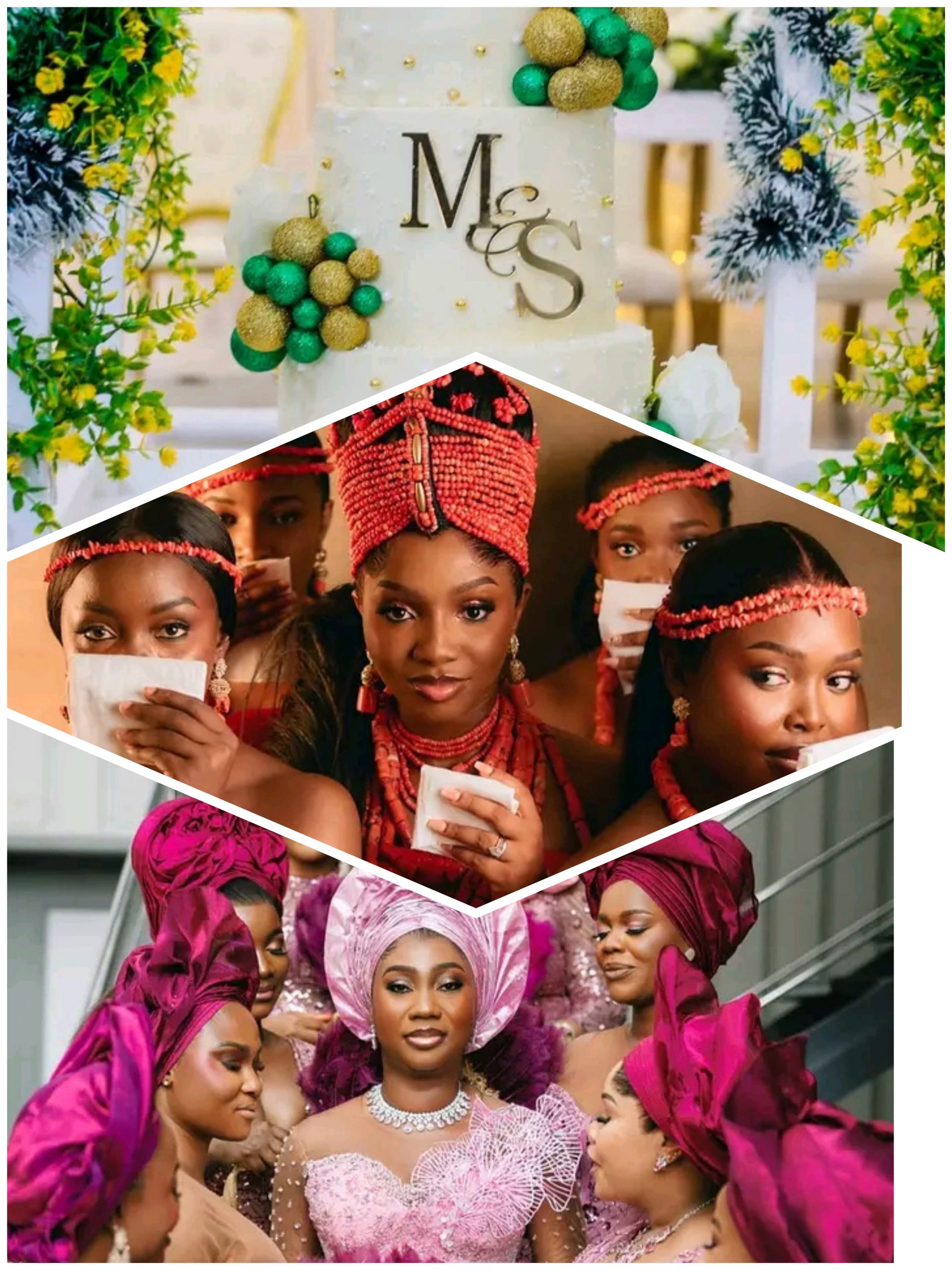The Nigerian Wedding Paradox
If you’ve ever been to a Nigerian wedding, you’ve probably noticed something interesting: Most couples get married twice. This practice is somewhat strange to some other jurisdiction, even in Africa.
First, there’s the lavish traditional wedding- colorful, week-long celebration with aso-ebi, cultural rites, and enough jollof rice to feed a small village.
Then, just days (or even hours) later, the same couple shows up in a white wedding gown and suit at a registry or church for a court wedding.
Why?
Is one not enough?
Are Nigerians just extra? Or is there something deeper behind this two-wedding tradition?
In this article, we’ll break down:
* The Real Reasons Nigerians Do Both Weddings
*The Hidden Costs (And How Couples Afford It)
* The Legal Truth: Which One Actually Makes You Married?
* Young Nigerians Rebelling Against the System.
1. “My Family Said It’s Not Official Until the Traditional Rites” – The Cultural Weight. For many Nigerian families, a court wedding alone doesn’t count.
Why?
In most ethnic groups, marriage isn’t just about two people, it’s a family alliance. The traditional wedding is where:
🔹 Bride price is paid (Igbo: “Ime ego”, Yoruba: “Owo ori”, Hausa: “Sadaki”)
🔹 Elders give blessings; (no parent wants to be bypassed)
🔹 Cultural pride is displayed ; (aso-ebi, dances, ancestral rites)
Example: When Tunde (Yoruba) and Chioma (Igbo) skipped their traditional wedding, Chioma’s father refused to acknowledge the marriage for years.
The Pressure is Real
Many couples do the traditional wedding, just to please parents, even if they’d prefer a simple court wedding.
2. “The Government Doesn’t Recognize Our Traditional Marriage” – The Legal Side
Here’s the irony:
Traditional wedding = culturally valid, but legally weak.
Court wedding = legally binding, but culturally “cold”
Why the Law Favors Court Weddings
Under the Marriage Act, only registered marriages (court/church) grant:
✅ legal inheritance rights (without a will, traditional wives can lose property)
✅ Divorce protections (traditional marriages are harder to dissolve legally)
✅ International recognition (try getting a spouse visa with just traditional rites)
Shocking Case:
A Lagos businessman died without a will. His wife of 15 years (traditional marriage only) lost everything to his siblings because they weren’t legally married.
3. “We Did Two Weddings Because of Religion” – The Faith Factor
For Christian & Muslim couples, a religious ceremony often replaces or complements the court wedding.
Church Weddings vs. Traditional Rite
✝️ Christians: Many pastors won’t officiate without a traditional wedding first.
☪️ Muslims:”Nikkah” is the religious requirement, but couples still do court weddings for legal safety.
Example:
Amina (Muslim) and Daniel (Christian) had:
Traditional introduction (for culture)
Nikkah ceremony (for her family’s faith)
Court wedding (for legality)
White wedding (for his family’s church)
Total weddings: 44.
“We Wanted One Wedding, But Nigeria Said No”;
The Financial Burden
Let’s talk money.
* Average Costs of Nigerian Weddings (2024)
*Traditional Wedding: ₦3M – ₦10M+ (aso-ebi, food, venue, gifts)
*Court Wedding: ₦50K – ₦500K (registry, small reception)
* Church Wedding: ₦1M – ₦7M (venue, decor, catering)
Total for both? ₦4M – ₦15M+
How Couples Afford It
•taggered weddings (6 months apart to save)
• Sponsorships (parents, friends, “contributions”)
•Side hustles (many couples start businesses just to fund weddings)
Reality Check:
Some couples go into debt for years just to meet family expectations.
5. “We Said No to Two Weddings” –
The New Rebellion:
A growing number of young Nigerians are opting out of the double-wedding stress.
Why?
“We’re not rich”; Many millennials prefer a simple court wedding + small party
“Our parents can’t dictate our marriage”; More couples are setting boundaries.
“Love shouldn’t be this expensive”; Some choose destination weddings instead.
Example:
Funmi and Seun spent ₦300K total on a registry wedding + lunch with 30 guests.
Her mom boycotted for a year but eventually came around.
The Big Question:
Which Wedding Actually Makes You Married?
Legal Answer:
Only court/church weddings hold up in Nigerian law.
Cultural Answer:
Try telling your Igbo in-laws that their “Igba Nkwu” doesn’t matter.
Smart Couples Do This:
1. Court wedding first (for legal protection).
2. Traditional wedding later (for family peace)
Final Verdict: Will Nigeria Ever Move to One Wedding? Probably not soon.
The two wedding tradition is deeply rooted in:
• Culture(family pride)
• Law(government requirements)
• Religion (church/mosque rules)
But as more couples push back against financial pressure, we might see a shift toward simpler, hybrid weddings.
What Do You Think?
👉 Should Nigerians stick to two weddings?
👉 Or is it time to break the cycle?
Drop your comments below.

